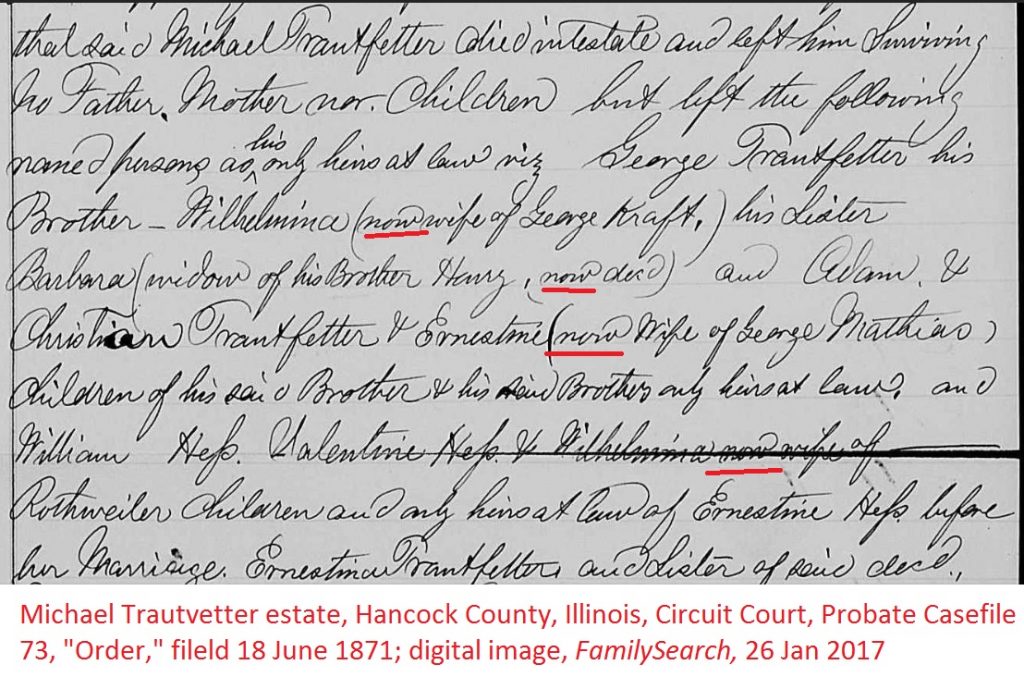“Now” is one of those words that can create minor confusion in legal documents.
It means what it says: “now.”
The 1871 illustration from the estate of Michael Trautvetter indicated that among his heirs were the following:
- Wilhelmina (now wife of George Kraft)
- Barbara (widow of his brother Henry, now decd)
- Ernestine (now Wife of George Mathias)
- Wilhelmina (now wife of ___ Rothweiler)
The “now” means “as this document was written. The document, actually a court order regarding Michael Trautvetter’s estate, was filed on 18 June 1871 and was likely created within a few days of the filing.
So as of that date:
- Wilhelmina was the wife of George Kraft
- Henry Trautvetter was dead
- Ernestine was the wife a George Mathias
- Another Wilhelmina was the wife of a Rothweiler
The use of the word “now” does not mean that the marriage of either the Wilhelminas was recent. It does not mean that the marriage of Ernestine to George Mathias was recent. It does not mean that the death of Henry Trautvetter was recent. The word is clearly establishing the situation at the point in time the document was written.
It turns out that Ernestine had been married to George Mathis since the early 1850s and that Wilhelmina has been married to a Rothweiler since shortly after the Civil War. From other records, Henry Trautvetter was alive in February of 1869, but all that’s meant by this document is that Henry was dead when it was created.
The marriage date of Wilhelmina to George Kraft is not known. She could have married George the day before this document was made out or thirty years before.
Now don’t let “now” throw you.


2 Responses
I read ‘somewhere’ that the phrase ‘now wife’ usually meant that there was also a previous wife. True or not?
That’s not necessarily true. It is the wife at the time of the document was written. It is frequently used in wills to denote a bequest that a husband may want to go to a current wife, but not to any subsequent wives he may have (or potentially that subsequent wife’s heirs which may not be his children). It’s frequently a lawyer covering all his bases and making certain the property does not inadvertently bypass the children because of how the will was phrased.